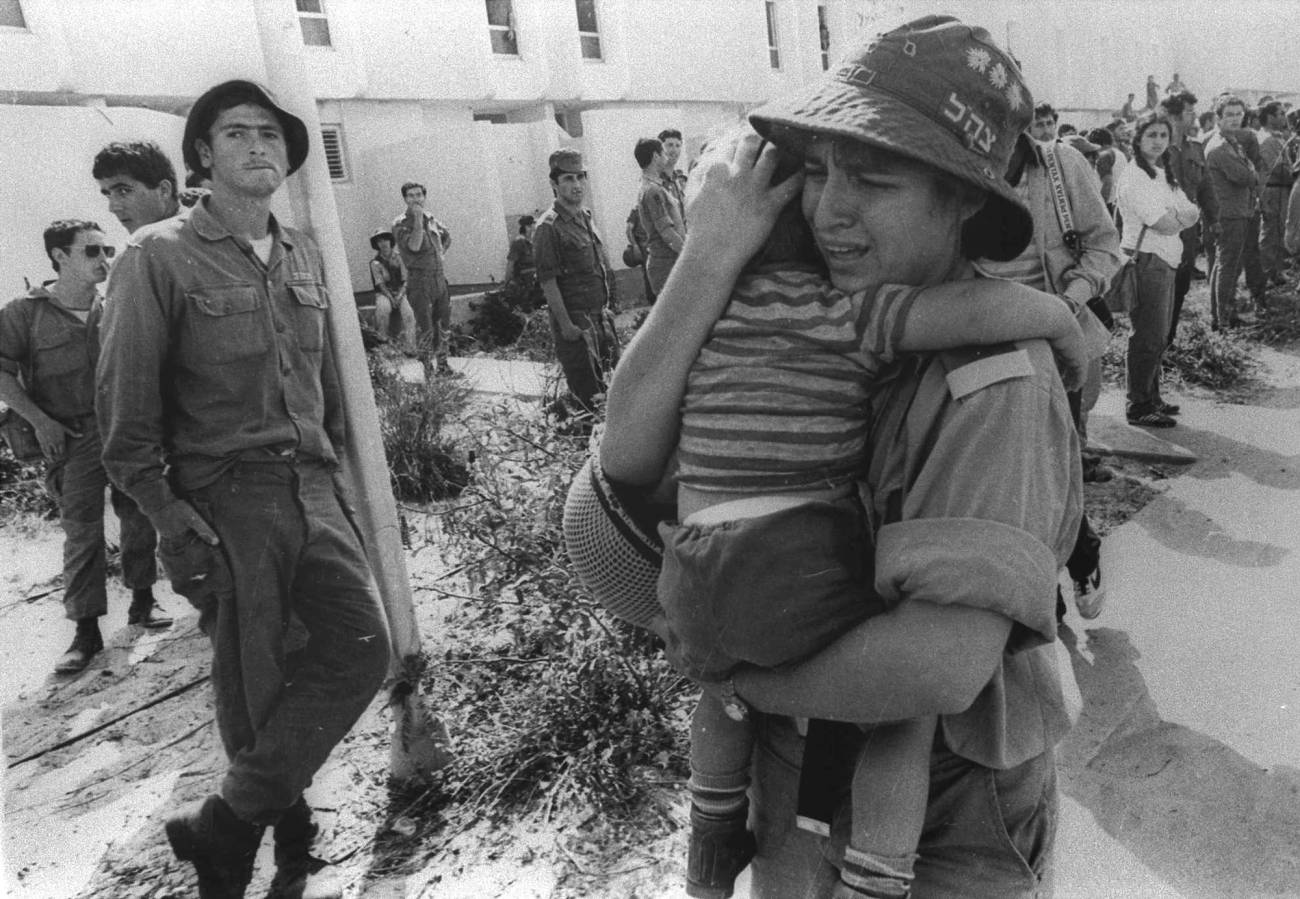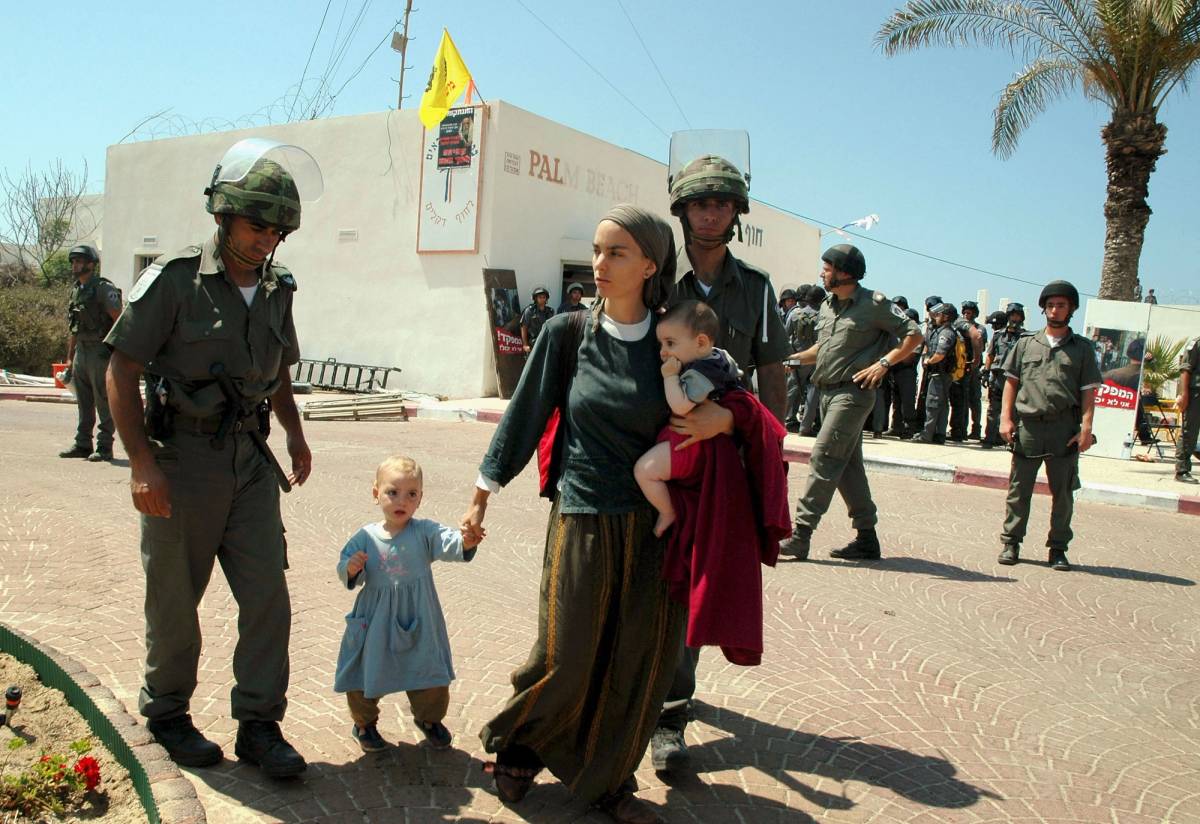 Prezydent Duda: z obozu Auschwitz-Birkenau rozlega się niemilknący krzyk przestrogi
Prezydent Duda: z obozu Auschwitz-Birkenau rozlega się niemilknący krzyk przestrogi
Rafał Grzyb
Prezydent Andrzej Duda w liście do uczestników krakowskiej konferencji dotyczącej antysemityzmu napisał, że tak jak w 1945 roku, tak i dzisiaj oraz po wsze czasy z niemieckiego nazistowskiego obozu koncentracyjnego i zagłady Auschwitz-Birkenau rozlega się nigdy niemilknący krzyk przestrogi.
W poniedziałek w Krakowie rozpoczęła się międzynarodowa konferencja dotycząca kwestii antysemityzmu, która jest częścią uroczystości upamiętnienia Holocaustu, organizowanych pod auspicjami Europejskiego Stowarzyszenia Żydów. W poniedziałek po południu w spotkaniu ma wziąć udział m.in. Elon Musk, właściciel Tesli i platformy X.
Na początku konferencji list od Andrzeja Dudy przeczytał prezydencki minister Wojciech Kolarski. Jak przypomniał w swym przesłaniu Duda, wkrótce upłynie 79 lat od momentu, gdy otwarte zostały bramy niemieckiego nazistowskiego obozu koncentracyjnego i zagłady Auschwitz-Birkenau. „Około siedmiu tysięcy osób doczekało oswobodzenia. Ale też, co nie mniej ważne, zerwane zostały okowy milczenia o tym prawdziwym piekle na ziemi” – zaznaczył prezydent.
„Na nic zdały się wysiłki hitlerowskich oprawców, aby zatrzeć ślady popełnionych zbrodni. Jak w 1945 roku, tak i dzisiaj oraz po wsze czasy z tamtego miejsca rozlega się nigdy niemilknący krzyk przestrogi” – podkreślił Duda w liście do uczestników spotkania.
Dlatego – napisał prezydent – w rocznicę wyzwolenie więźniów z tej przerażającej fabryki śmierci obchodzimy Międzynarodowy Dzień Pamięci o Ofiarach Holocaustu, ustanowiony przez Zgromadzenie Ogólne ONZ.
„Każdego 27 stycznia całą wspólnota ludzka łączy się w akcie czci dla pomordowanych oraz współczucia i troski wobec ocalonych. W tym dniu na nowo podsycamy płomień pamięci o wydarzeniach, o których w pierwszym obronnym odruchu ludzkiej psychiki chciałoby się zapomnieć – ale które muszą być pamiętane i właściwie rozumiane także przez przyszłe pokolenia” – przekazał Duda. W sposób szczególny misję tę kontynuuje Polska – kraj, którego 3 mln obywateli żydowskich padło ofiarami Holokaustu.
„Każdego 27 stycznia całą wspólnota ludzka łączy się w akcie czci dla pomordowanych oraz współczucia i troski wobec ocalonych. W tym dniu na nowo podsycamy płomień pamięci o wydarzeniach, o których w pierwszym obronnym odruchu ludzkiej psychiki chciałoby się zapomnieć – ale które muszę być pamiętane i właściwie rozumiane także przez przyszłe pokolenia” – przekazał Duda. W sposób szczególny misję tę kontynuuje Polska, kraju którego 3 mln obywateli żydowskich padło ofiarami Holokaustu.
Jak podkreślił prezydent, jesteśmy „wciąż poruszeni i głęboko zranieni faktem, że władze III Rzeszy umiejscowiły swój zbrodniczy przemysł pogardy właśnie na terytorium podbitej i okupowanej Polski, która była przez wieki tolerancyjnym, bezpiecznym, wspólnym domem przedstawicieli wielu ras, języków, kultur i religii”.
„Deklarujemy niezłomną wolę stania na straży prawdy i pamięci o dokonanych tu przez najeźdźców ludobójstwie Żydów. Czynimy tak w przekonaniu, że wstrząs, jaki budzi wiedza o tej zbrodni, ma moc przemiany ludzkich serc i sumień oraz uwrażliwienia na nietolerancję, nienawiść, ksenofobię, rasizm i szowinizm; na łamanie praw człowieka i prawa międzynarodowego w butnym przeświadczeniu, iż agresja i przemoc mogą być metodami działania we współczesnym świecie” – podkreślił Duda.
Jak zaznaczył w liście „stojąc co roku u bram dawnego KL Auschwitz-Birkenau, kierujemy ku wszystkim narodów wezwanie do budowy lepszej przyszłości – pełnej solidarności i empatii opartej na wolności, wzajemnym szacunku i wartościach uniwersalnych”.
Prezydent wskazał, że na tegorocznych obchodach Międzynarodowego Dnia Pamięci o Ofiarach Holocaustu kładzie się cieniem terrorystyczny atak na Izrael, którego 7 października ubiegłego roku dopuścili się członkowie Hamasu. „Oddajemy hołd ofiarom tej agresji i łączymy się w bólu z ich rodzinami. Ufamy także, że wszyscy uprowadzeni zakładnicy jak najszybciej powrócą do swoich domów, do wyczekujących ich krewnych i przyjaciół” – podkreślił w liście.
Dyrektor EJA Jorgos Papadakis ocenił w swoim wystąpieniu, że po 7 października nastąpił „astronomiczny kryzys antysemityzmu w Europie”. „Chcemy wysłać sygnał, że +nigdy więcej+ jest teraz, że antysemityzm się odradza i musimy mu przeciwdziałać na wszelkie sposoby” – podkreślił.
Według niego, krakowska konferencja ma na celu zastanowienie i refleksję nad przyczynami wzrostu europejskiego antysemityzmu po ataku Hamasu na Izrael oraz zaapelowanie do wszystkich europejskich władz o wprowadzenie adekwatnych rozwiązań przeciwdziałających tym aktom.
Prezydencki minister Wojciech Kolarski, pytany przez dziennikarzy o przejawy antysemityzmu w Polsce na tle innych europejskich państw, powołał się na wystąpienie przedstawiciela Towarzystwa Społeczno-Kulturalnego Żydów, który zabierał głos w krakowskiej debacie.
„On powiedział takie słowa dla nas bardzo krzepiące, że w porównaniu z krajami Europy zachodniej społeczność żydowska w Polsce czuje się bezpiecznie” – relacjonował minister.
„Rzeczywiście tak jest i obiektywnie tak jest. Polska na szczęście jest krajem, w którym wszyscy przedstawiciele społeczności żydowskiej mogą manifestować swoją tożsamość, nie ma samochodów policyjnych przed synagogami – to powód do dumy dla nas, że Polska jest takim krajem” – podkreślił Kolarski.
Minister, pytany o ostatnie incydenty antysemickie w Polsce, powiedział: „każdy incydent jest godny potępienia, każdy incydent jest zgodnie z prawem ścigany, jeśli dochodzi do złamania prawa i każdy musi być zwalczany, co do tego nie ma żadnej wątpliwości”.(PAP)
Zawartość publikowanych artykułów i materiałów nie reprezentuje poglądów ani opinii Reunion’68,
ani też webmastera Blogu Reunion’68, chyba ze jest to wyraźnie zaznaczone.
Twoje uwagi, linki, własne artykuły lub wiadomości prześlij na adres:
webmaster@reunion68.com





